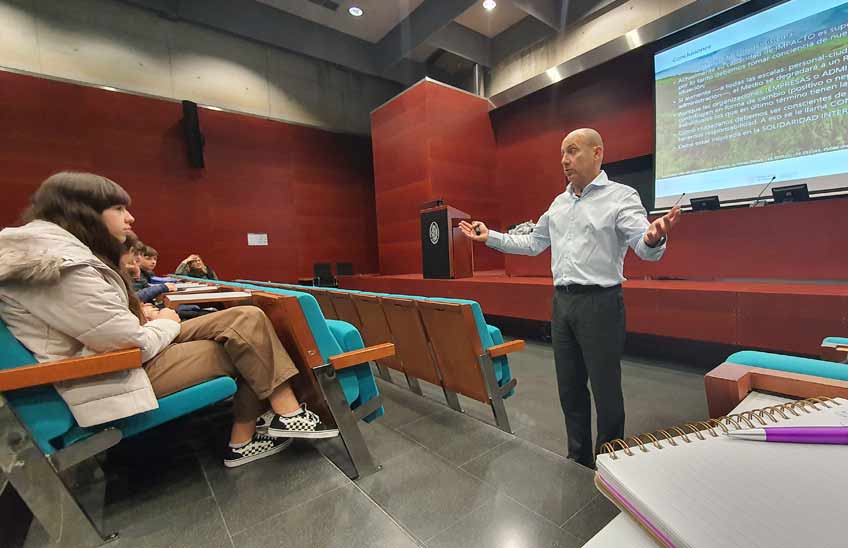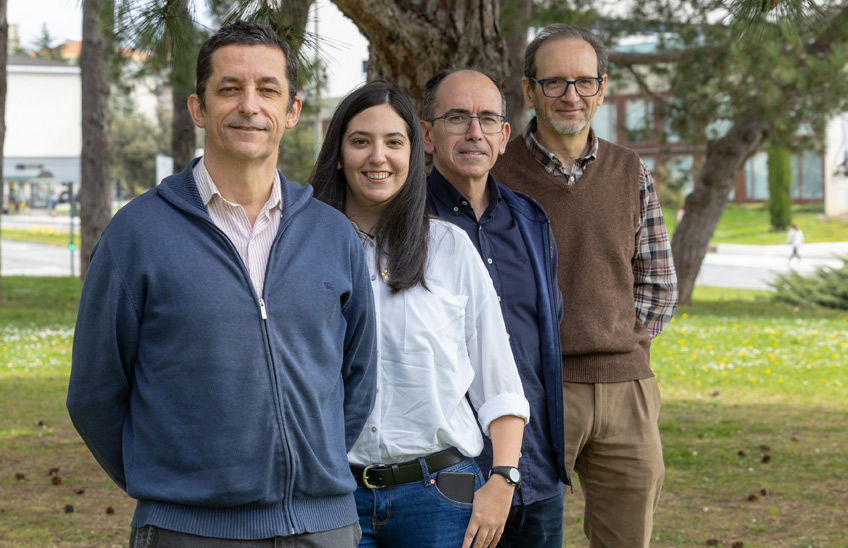Enrique Baquero: "A healthy and sustainable per diem expenses should not include more than 5-10% meat".
The researcher of the Biodiversity and Environment Institute of the University of Navarra participated in a meeting on the occasion of Science Week.

22 | 11 | 2022
"A healthy and sustainable per diem expenses should not include more than 5-10 percent meat, but we should not stop eating it because it is necessary." This was stated by Enrique Baquero, researcher of the Biodiversity and Environment Institute of the University of Navarra, at the lecture "What can you do for the environment?", organized by the Science Museum of the University of Navarra (with the financial aid of the Spanish Foundation for Science and Technology (FECYT) / Ministry of Science and Innovation), on the occasion of Science Week. The session was attended by more than 100 students from some schools in Navarra. high school diploma from some schools in Navarra.
During the meeting, Baquero established that each group that makes up society has to assume its responsibility for environmental pollution. For example, the administration or government, in land occupation or habitat fragmentation; companies, in emissions or discharges; and individuals, in waste.
Furthermore, he added that "although organizations (administration or companies) are the ones that contribute the most in the form of change, whether positive or negative, it is the individual citizens who are ultimately responsible". Baquero also stated that in global terms, transportation, which "is normally the first aspect that comes to mind, contributes 29% to pollution," which is less than one might think. Electricity production (28%) or agriculture (10%) are other sectors that contribute significantly to CO2 emissions.
Based on this, the speaker took the opportunity to talk about the mobility of the population and advocated prioritizing the bicycle before any other means of transport. More than the electric scooter, for example, because of its energy consumption when charging and manufacturing it. "The problem with scooters is that when we have studied who rides a scooter around the city we have seen that in more than 90% of the cases that person was walking before, so now they have switched to using energy," he said.
Finally, he also explained sustainability in a broader sense, since for the professor, a sustainable world is not only about "keeping everything green", but also that animals and human beings have the possibility of being in it. Baquero also insisted on the importance of economic sustainability because "in the end, society is based on exchanging money for products. If this is not maintained, someone runs out of resources to survive".


